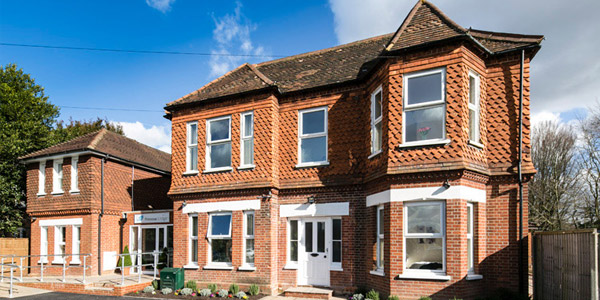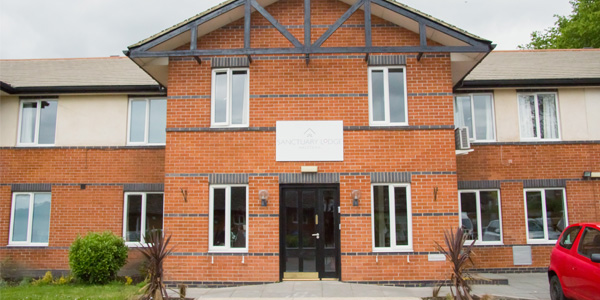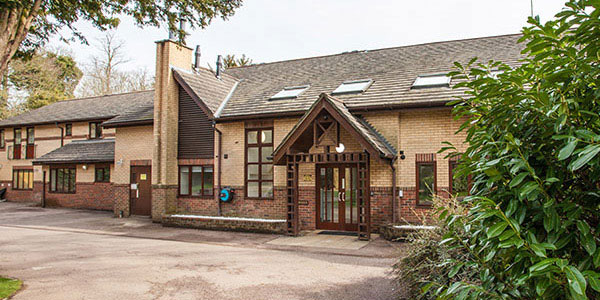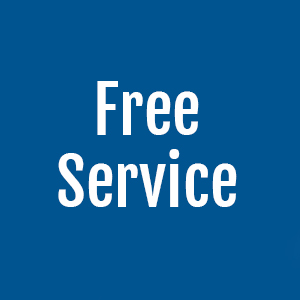Alcoholism rehab and drug rehab treatment services including medical detox and therapeutic behavioural rehabilitation are available in Chelsea, which is a wealthy district of West London in the Greater London area. Chelsea is within the London Borough of Kensington and Chelsea. The district of Chelsea was formerly a major part of the Metropolitan Borough of Chelsea, before the amalgamation of the Boroughs of Kensington and Chelsea.
If you are suffering from addiction to alcohol including alcohol use disorder, abuse, dependency, alcoholism cocaine, heroin, crack or prescription drug addiction, Addiction Helper can help you get the residential drug or alcohol rehabilitation treatment programme of recovery that you need in order to overcome active substance abuse or dependency to alcohol or drugs. Our patient centred approach means your health and psychotherapy needs will be at the forefront of our treatment model.

At Primrose Lodge we genuinely care that our patients make a full recovery …
- Private
- Holistic Treatment
- Onsite gym
- Residential
UKAT Rehabs
Sanctuary Lodge is a state of the art detox and rehabilitation facility, se…
Liberty House Clinic is a fully furbished detox and rehabilitation facility…
Banbury Lodge is a private UKAT rehab facility based in Banbury, Oxfordshir…
-
- 12 Step
- Group Setting
- Free
- Outpatient
-
- 12 Step
- Group Setting
- Free
- Outpatient
-
- 12 Step
- Group Setting
- Free
- Outpatient
- Load More
Drug & Alcohol Rehab Services in London
- A
- B
- C
- D
- E
- F
- G
- H
- I
- J
- K
- L
- M
- N
- O
- P
- Q
- R
- S
- T
- U
- V
- W
- X
- Y
- Z
What Is Rehab?
Rehab – short for ” rehabilitation” – is the term given to the process of getting treatment for addiction at a dedicated facility, and also applies to such a facility itself (which is where we get the phrase “going to rehab”). It is generally considered to be the most effective approach to treating addiction in terms of its ability to deliver a permanent recovery, thanks in large part to its dual approach tackling both the immediate challenge of physical dependency and the longer-term one of psychological.

Outpatient rehabs focus on treating while still letting your loved ones manage everyday life responsibilities. Inpatient rehabs, on the other hand, are tranquil, secure, aesthetically pleasing, welcoming and – crucially – confidential institutions in which patients can concentrate fully on recovery having removed themselves from the day-to-day environment of substance abuse. Confidentiality is crucial because patients are able to relax in the knowledge that their condition will remain secret.
If you attend rehab, typically on an inpatient basis, you will benefit from the presence of highly experienced medical professionals who understand the nature of addiction. You can also enjoy the support of a peer group whose members are, like you, determined to turn their lives around and get back onto the path to happiness and success.
How Can I Get Someone into Rehab?
If you or a loved one are struggling with addiction, it is not mere hyperbole to state that every day counts when it comes to reaching out to help. The longer an addiction goes on, the greater the chance that it will end in tragedy as a result of a fatal overdose or an accident. However, treating someone who is not ready to be treated – who does not truly want to stop abusing alcohol and/or drugs – is a futile endeavour almost guaranteed to end in failure, so it is absolutely vital to develop the right mindset as quickly as possible.
This is one point at which we can step in: we can help arrange interventions for addicts who have not yet proven themselves able to admit to their condition. For those who have and are reaching out to help we can assist in making the necessary preparations before heading to rehab.
The NHS can provide high-addiction treatment services – yet with demand already so high and growing across the country, especially in densely populated areas like Kensington & Chelsea – waiting lists can be extremely long with no guarantee of a place. As noted, time is of the essence – so if you’re in Kensington & Chelsea and are ready to reach out for help, speak with an addiction specialist about some of the private options which may be available to you.
Advantages of Private Rehab
Rehab provides a pleasant, peaceful, secure and confidential setting in which the recovery process can begin and you can focus fully on your own well-being without the temptations of the outside world, and away from your substance/s of abuse.
Upon entering rehab, you will be assessed to determine the nature and severity of your addiction, and to allow the medical staff to draw up your individualised treatment plan before you embark on a detoxification process. During this first stage of rehab, your body is cleansed of substances of abuse. Within private centres, this process will be monitored by a medical team to ensure your safety on a 24/7 basis. Any withdrawal symptoms which manifest may be treated with the appropriate medication.
Once you have gone through detox, you will move into the second main phase of rehab: therapy. A number of different therapy models (in both group and one-to-one settings) will be provided. The purpose of therapy in addiction treatment is to reveal the root causes of your addiction and, by so doing, demonstrate what led you into addiction so you can avoid making the same mistakes going forward. Therapy will also provide you with a number of psychological defence mechanisms against relapse.
Throughout treatment you will benefit from tailored dietary and fitness plans (integrated into your overall individual treatment plan) and from access to an array of other facilities. Although they will vary from one rehab to another, they will all have the aim of making your stay as comfortable and as stress-free as possible and maximising the impact of your treatment.
However, the end of your treatment programme does not imply the end of your recovery: recovery is an ongoing process requiring dedication and diligence. You should not consider yourself fully free from addiction just because you have left rehab. Because of this, good rehabs will provide up to a year’s free aftercare to give you the comfort of ongoing support during this next crucial phase of your recovery.
What Does Rehab Cost in Kensington & Chelsea?
The cost of private rehab in or near Kensington & Chelsea can vary significantly by treatment programme, and depending on which of a variety of optional extras are selected. As a rough guide, standard costs range from between £5,500 and £11,000 per month, though the cheapest rehab treatment can start from as little as £834 per week.
Kensington & Chelsea NHS Addiction Treatment
Perhaps for reasons of cost, some people decide that private rehab is not an option for them. If you believe for whatever reason that you are likely to find yourself in that group, do not give up hope: there are still options open to you. Various NHS and charity resources can be found in Kensington & Chelsea and the wider Greater London area; speak with your GP about which of these resources may be available to you.
Advantages of NHS Treatment
Bearing in mind the aforementioned reluctance of some people to pay for private rehab, one obvious advantage of NHS treatment is that it is free at the point of service delivery. However, there are other advantages too: for one thing, the NHS is active across the UK, whereas some private rehabs are a long distance away from Kensington & Chelsea. Although it’s a desired effect, it may be seen as a problem. Another benefit is a generally high quality of service, though that quality does vary from one NHS trust to the next, and as noted above some areas suffer from very high demand and consequently large waiting lists.
Addiction Support Groups
A number of organisations exist across the country to provide assistance to recovering addicts, and some of these operate a support group model. Support groups are groups of individuals who are themselves recovering addicts. While some have just become free from addiction themselves, others may have been clean for many years. They come together at regular meetings to give and take mutual support: sharing their stories of addiction, giving advice on how to resist relapse, showing solidarity and sympathy when group members are struggling, and providing the simple companionship which can mean so much in times of difficulty and loneliness.
Support group attendees can come from all walks of life, brought together by their shared experience of addiction and recovery; typically, attendance at support groups is free and the only qualification for participation is a commitment to leading a life free of substance abuse.
The most famous support group organisation, and the one on which most others are modelled, is Alcoholics Anonymous (AA) which was founded in 1935 and runs on a 12-step programme of personal and spiritual development, with one of the steps being a recognition that a higher power – such as God – can assist with an alcoholic’s recovery. Narcotics Anonymous (NA), founded in 1953 and based directly upon the AA model, is the second-largest support group organisation worldwide and caters to recovering drug addicts specifically.
In a similar vein, but supporting those recovering from addictions to specific substances, are Cocaine Anonymous (CA), Heroin Anonymous (HA), Marijuana Anonymous (MA) and Crystal Meth Anonymous (CMA), all of which operate 12-step programmes. There are also support groups such as Al-Anon and Nar-Anon assisting the families and friends of addicts which typically hold meetings alongside those for the addicts themselves.
Support groups typically meet weekly, though each local chapter is managed independently and meeting times and venues are subject to change. To find information on meetings in or near Kensington & Chelsea, see the relevant websites.
Types of Counselling

Some recovering addicts – in particular those with very busy schedules – find that individual outpatient private counselling is an extremely useful treatment model. Private addiction counsellors work like regular psychotherapists – though with a clear emphasis on tackling the causes and consequences of substance abuse and addiction – offering private appointments. One-off, irregular, or on a regular basis, they usually charge a fee per appointment.
You can find private addiction counsellors across the country, with many at work in the capital. A great variety of different therapy models and approaches to treatment are available. Counsellors are usually available only during set working hours, although some do make themselves available for emergency access. These professionals provide individual, as well as group, sessions.
Various types of counselling are often sought by recovering addicts who have already been through a programme of treatment such as may be provided in rehab and who desire supplementary support during the next phase of the recovery. On the other hand, it is also the preferred option for many addicts who have not yet been to rehab but are preparing to do so and who want help in managing their addictions prior to engaging in a full residential treatment programme.
Reaching London’s Borough of Kensington & Chelsea
Kensington & Chelsea is found in inner London. It borders several other boroughs (Hammersmith & Fulham, Westminster, Wandsworth, Richmond upon Thames, and Brent). This borough’s southern border is via the river Thames.
If you’re travelling by car, you can use the larger roads available for drivers who come to the region: Westway, the A3220, the A308, Cromwell Road, and the A3212. They cover all of the Kensington and Chelsea wards (Albertopolis, Bayswater, Belgravia, Brompton, Chelsea, Chelsea Harbour, Earl’s Court, Holland Park, Kensal Green, Kensington, Knightsbridge, Ladbroke Grove, North Kensington, Notting Hill, South Kensington, West Brompton, West Kensington, and World’s End.)
The London Underground passes through the area (Central line, Circle line, District line, Hammersmith & City line, and Piccadilly line). If you are coming from far and will arrive after a flight, make sure you land at the nearest airport – Heathrow (unless you have an option to land at the City Airport, which is really close to Chelsea and Kensington alike).
If you have some time to spent before your admission, or are afraid not much can be done in Kensington & Chelsea while you’re having your rehab-centred holistic outings, keep in mind the following local areas of interest: the Kyoto Garden in Holland Park, Kensington Gardens Elfin Oak, the Golborne Road market, and the Royal Court on Sloane Square.
How to get to Primrose Lodge from Kensington & Chelsea?
Primrose Lodge is a unique rehab clinic located in the historic town of Guildford, Surrey. Boasting a private gymnasium, purpose-built treatment rooms and en suite bedrooms, this attractive, spacious building is the perfect getaway for those battling addiction, while Primrose Lodge’s highly experienced staff are on hand 24/7 to ensure patients’ safety and comfort. Integrated treatment programmes designed to address the root causes of addiction are provided in a tranquil and confidential environment in which patients can focus wholly upon their recovery.
To get to Worplesdon from Kensington & Chelsea by car, take the King’s Road, then New King’s Road, and then Fulham High Street to Tibbet’s Corner where you should merge onto Kingston Road/A3. Stay on the A3 for another 35 kilometres before taking the A3100 onto the A320, and finally join the A322/Worplesdon Road.
For those travelling by train, take the tube from either West Kensington, Kensington Olympia, Sloane Square, South Kensington, Gloucester Road or Earl’s Court, heading to Vauxhall; national rail services run from Vauxhall direct to Worplesdon.
Primrose Lodge
Perry Hill
Worplesdon
Guildford
Surrey
GU3 3RY





